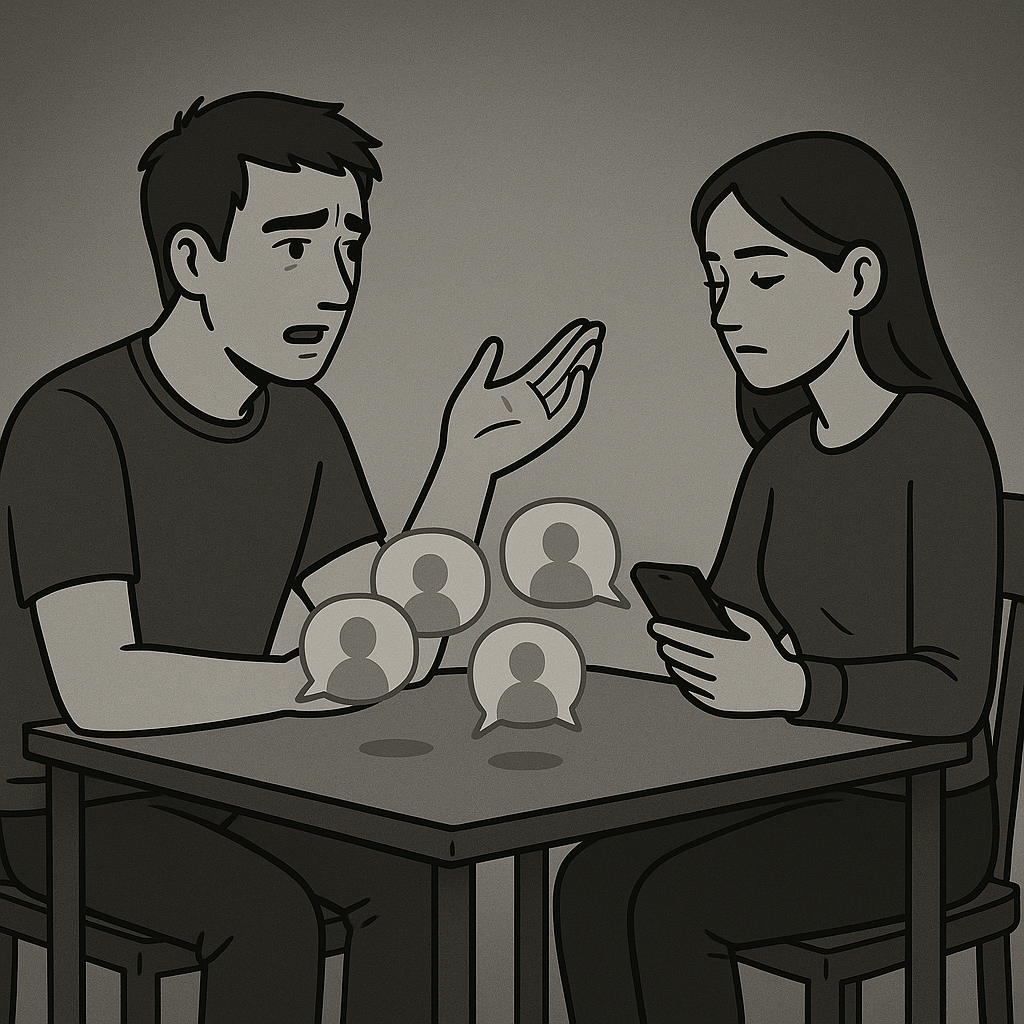Stories We Almost Didn’t Tell
A thoughtful collection of stories based on true events and insightful reflections exploring modern relationships, attachment patterns, emotional boundaries, and the complexities of human connection.
Latest short stories
Having experienced being ghosted myself, I knew the confusion and self-doubt it planted. Respect required more than simply walking away. It meant revisiting the conversation I'd prematurely ended.
We were somewhere between blissful beginnings and inevitable endings. That limbo of a relationship where everything feels serious yet suspended, like walking on ice that's deceptively thin.
Outside, my phone buzzed relentlessly. Text after frantic text, voicemail apologies that spiraled from remorseful confusion into wounded indignation. Later, I heard the bar staff had asked her to leave: "We don’t serve people like that," they’d said, taking pity on me by proxy.
I came back to find the door to my dorm room wide open. Not ajar. Open, like someone had fled or been abducted mid-drama. She was gone. The room was empty.
Sure. The kind of sport where you balance your body on someone’s feet while making intense eye contact. Not exactly neutral territory. She brushed off my discomfort as jealousy. Said I needed to “understand the context.”
It became a pattern. Ask. Pause. Counterpoint from someone who wasn’t there. A friend, a therapist, an article, an acquaintance who once dated someone kind of like me. At first, I found it curious. Later, I stopped talking as much.
I was polite but clear. "I appreciate it, but I’m not interested. Just moved, settling in, not looking to complicate things." I figured that would be enough. It wasn’t.
That weekend, my brother was coming to town. We hadn’t seen each other in a long time, and we made plans for a concert. Just the two of us. I mentioned it to her casually. It wasn’t a rejection. But it wasn’t an invitation either.
She told me I was using her vulnerability against her. That I had turned her confession into ammunition.
We went anyway. I wanted to make it work. But something didn’t come with us. The flow. The ease. The in-jokes. The us. The conversations grew quieter, colder. She noticed.
Every time I spoke from a place of reflection or personal experience, without really softening the edges, it got repackaged as something else. Sharp. Over-explained. Heavy.
A neighbor showed up at the top of the stairs. Baseball bat in hand. His expression said it all: I don’t want to be part of this. Neither did I.
Face-to-face, she was exactly who she was online, but louder. Her words filled every inch of space between us, an avalanche of self-doubt, anxious jokes, and confessional spirals.
A hello, a quick check-in, a moment stolen between long shifts. It felt almost sweet. Freedom. Independence.
Reflections & Insights
This explains why people may re-enter relationships too soon. They aren’t finished grieving or detaching from the prior bond. The new partner becomes emotional substitution, not a connection. They’re stepping into a role that’s still coded neurologically as “rebound” even if neither person says it out loud.
This dynamic often develops gradually, shaped by early relational patterns and sustained by psychological investments in hope, potential, or emotional idealisation.
There’s a key difference between being vulnerable and being emotionally available. Vulnerability means opening up in a way that invites connection. Availability is the ability to stay open and connected over time, not just during emotional moments.
Our brain thrives on familiarity. If our early relationships taught us that love is unpredictable, volatile, or conditional, we'll feel a strange sense of comfort in relationships that echo those dynamics.
Stay Disturbed. Quietly.



















On our final walk together, I struggled silently to maintain composure. Grief left me numb and distant. Abruptly, she broke the silence, handing me her phone…